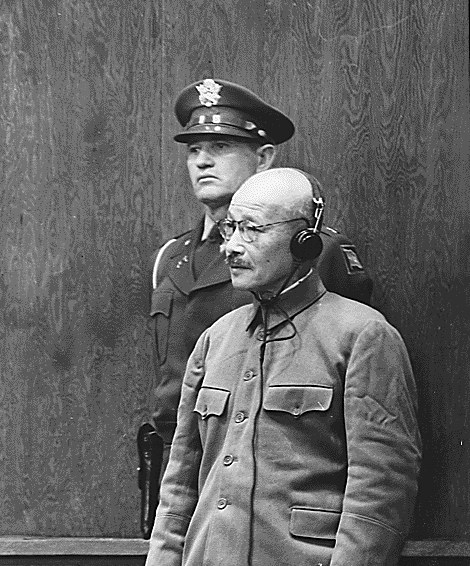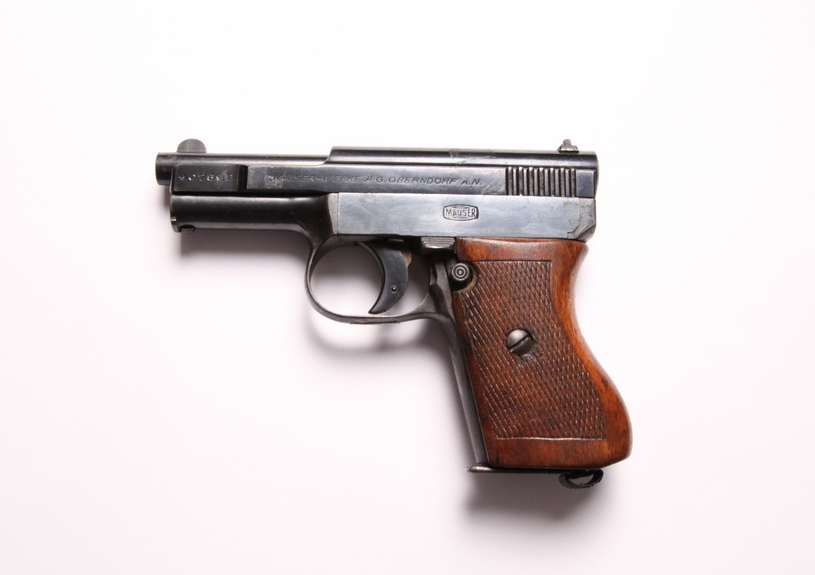Tojo’s Birthday
Born on December 30, 1884, Hideki Tojo would rise to the heights of power within the Japanese military and government. Following in his father’s footsteps, he joined the Imperial Japanese Army and was commissioned a lieutenant in 1905. By 1937, he was Chief of Staff of the elite Kwantung Army, and in July 1941 was appointed Minister of War. A mere three months later, he was named Prime Minister.
Tojo was nationalist, militaristic, and in favor of an aggressive foreign policy. He believed strongly in Japanese expansionism and unapologetically seizing land from China and maintaining control over Korea. He fully supported the attack on Pearl Harbor and other Allied outposts in the Pacific. The success of these attacks as well as other early-war victories boosted Tojo’s popularity among the Japanese populace, but following the blow to the Imperial Japanese Navy at Midway and subsequent losses, his likeability quickly declined. When Saipan fell to US troops in July 1944, Tojo saw that Japan could not win the war and resigned, possibly under coercion from Hirohito.
Following the unconditional surrender of Japanese troops in September 1945, one of General MacArthur’s first measures was to issue arrest warrants for the forty most wanted war criminals. Lieutenant Colonel Arthur “Chap” Turner headed up the 308th Counter Intelligence Corps detachment, responsible for finding and arresting those on the list. Turner personally participated in the arrest of the infamous Tokyo Rose (Iva Toguri), whom he described as “attractive but not beautiful, dressed neatly in Western clothes. Her voice was really seductive, she had charming manners, and such poise that she appeared perfectly at ease, although I am sure she must have been scared to death.” While not happy to be arrested, Toguri cooperated with Turner.
Tojo’s arrest, however, proved to be much more of an ordeal. When Turner’s men arrived at Tojo’s home to take him into custody, they found several reporters had beaten them to the chase there and were waiting outside Tojo’s home for photos. A gunshot rang out as Tojo attempted, but failed, to kill himself by shooting himself in the heart. An ambulance was called and Tojo’s life was saved, only for him to be incarcerated at Sagumo Prison, put on trial, and hanged for war crimes in December 1948.

Tojo on trial, 1945.
As souvenirs of the arrest, Turner received Tojo’s tunic and several samurai swords from his home “until a high-ranking general learned I had them and made such pointed hints that I realized the only diplomatic thing to do was surrender them to him.” General Eichelberger, Turner’s “boss” as the CO of the Eighth Army, wanted to give the items to MacArthur as gifts, which he did. Many of these pieces are currently in the collections of the MacArthur Memorial in Norfolk. Somehow, however, Turner managed to hold onto a small caliber pistol one of his men took from Tojo’s home, which has since been generously donated to The National WWII Museum by Turner’s daughter. For a long time, Turner actually had bloody bandages taken from Tojo’s house as well. Below is a photo of Turner trying Tojo’s tunic on for size!


Mauser pocket pistol taken form Tojo’s home the day he was arrested.
Gift of Capt. and Mrs. Armand E. Breard, USCGR (Ret), The National WWII Museum Inc., 2010.416.001
This post by curator Meg Roussel
- Posted :
- Post Category :
- Tags : Tags: End of War, Tojo
- Follow responses to this entry through the RSS 2.0 feed. You can skip to the end and leave a response. Pinging is currently not allowed.
One Response to “Tojo’s Birthday”
Kevin says:
He brought so much misery to Japan.
Leave a Reply



